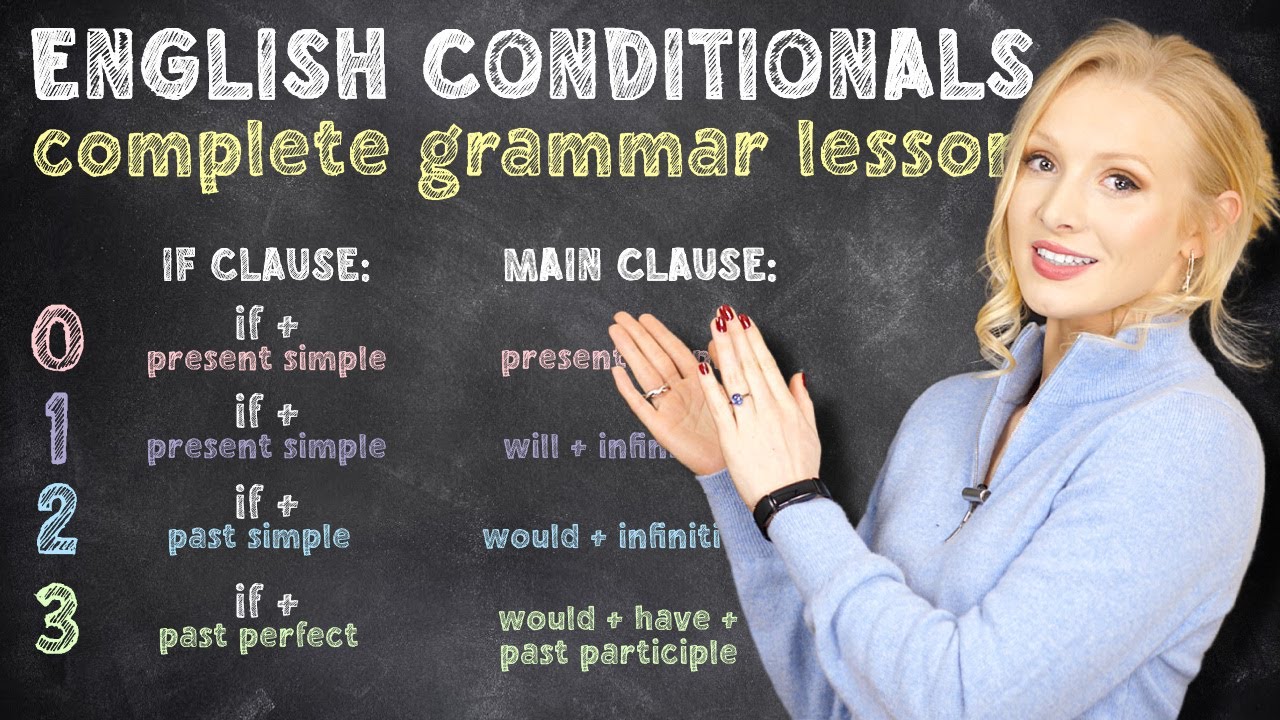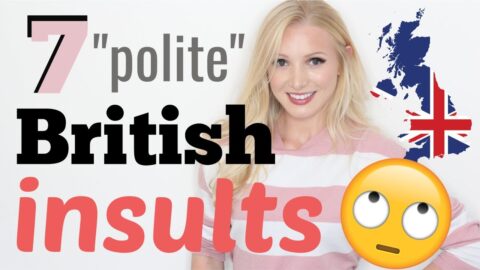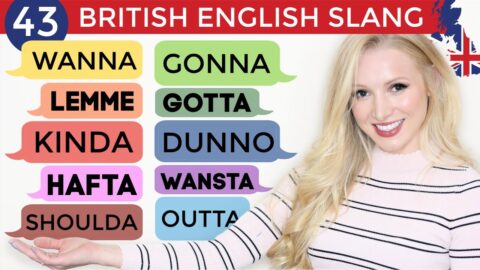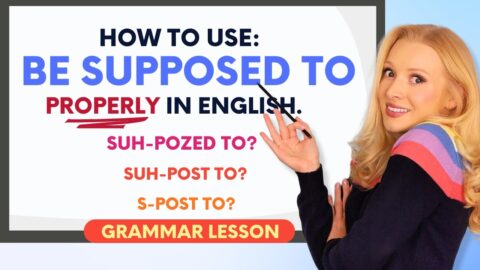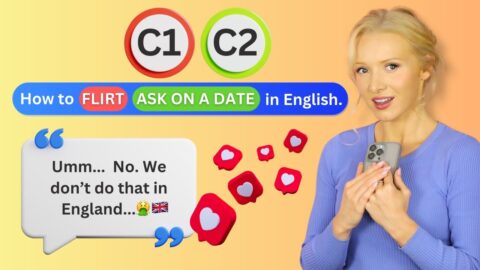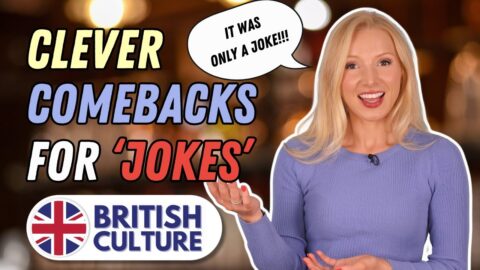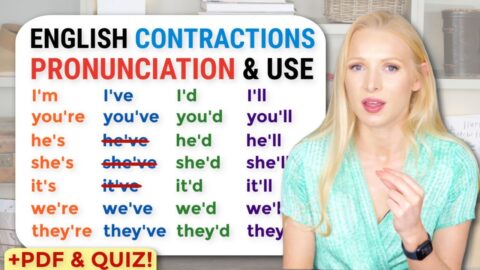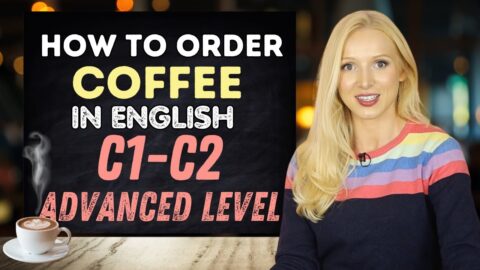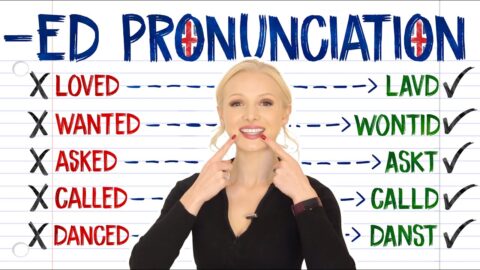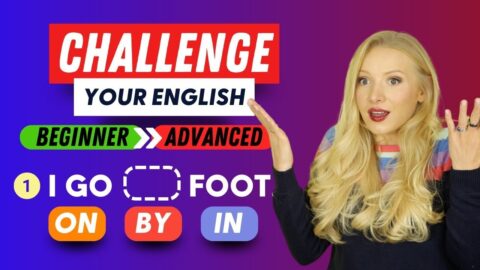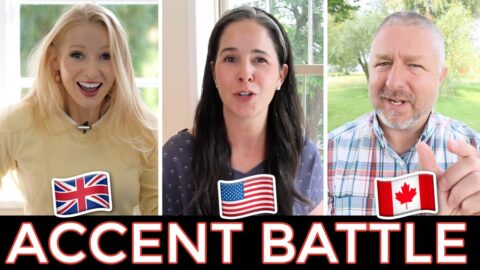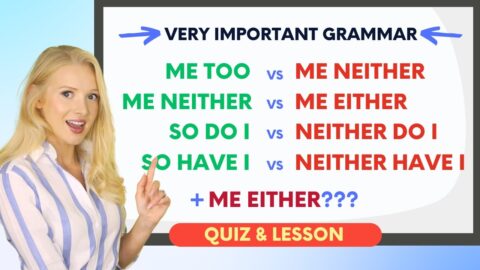Hello, everyone and welcome back
Olá a todos e bem-vindos de volta
to English with Lucy today.
para inglês com Lucy hoje.
Very exciting, I have a grammar lesson for you.
Muito emocionante, tenho uma aula de gramática para você.
We are going to discuss the four conditionals.
Vamos discutir as quatro condicionais.
This is a very, very important lesson.
Esta é uma lição muito, muito importante.
I know that this is a topic,
Eu sei que este é um tópico,
that lots of my students struggle with.
com as quais muitos dos meus alunos têm dificuldade.
There's so much to remember,
Há tanto para lembrar,
but hopefully I can clarify,
mas espero poder esclarecer,
lots of your doubts today.
muitas das suas dúvidas hoje.
To help you even further, I have created a PDF which covers
Para ajudá-lo ainda mais, criei um PDF que abrange
everything we're going to talk
tudo o que vamos falar
about, and it also has a quiz,
sobre, e também tem um quiz,
so you can practise what you've learned,
para que você possa praticar o que aprendeu,
and you can check your understanding.
e você pode verificar sua compreensão.
If you would like to download that free PDF and quiz,
Se você quiser baixar o PDF e o teste gratuitos,
all you've got to do is click on the link
tudo o que você precisa fazer é clicar no link
in the description box,
na caixa de descrição,
you enter your name and your email address.
você digita seu nome e seu endereço de e-mail.
You sign up to my meeting list,
Você se inscreve na minha lista de reuniões,
and I will send that PDF and quiz directly to your inbox.
e enviarei o PDF e o teste diretamente para sua caixa de entrada.
After that every week,
Depois disso, toda semana,
as soon as I've made the PDF for each lesson,
assim que eu tiver feito o PDF de cada lição,
as soon as it becomes available,
assim que estiver disponível,
you will receive it in your inbox.
você receberá na sua caixa de entrada.
It's automatic and very convenient and it means every week,
É automático e muito conveniente e significa que toda semana,
you get lovely new activities,
você ganha novas atividades adoráveis,
and PDFs to review.
e PDFs para revisar.
Don't be afraid to share your results
Não tenha medo de compartilhar seus resultados
in the comment section.
na seção de comentários.
Right, let's get started with the grammar lesson.
Certo, vamos começar com a aula de gramática.
So we're going to talk about the four conditionals.
Então vamos falar sobre os quatro condicionais.
We have the zero conditional,
Temos o condicional zero,
the first conditional,
o primeiro condicional,
the second conditional,
o segundo condicional,
and can you guess what the last conditional is?
e você consegue adivinhar qual é a última condicional?
Congratulations, it's the third conditional.
Parabéns, é a terceira condicional.
Each conditional sentence has an if clause,
Cada frase condicional tem uma cláusula if,
and a main clause.
e uma oração principal.
With all conditional sentences,
Com todas as sentenças condicionais,
the order of these clauses is not fixed,
a ordem dessas cláusulas não é fixa,
so you can swap them around.
para que você possa trocá-los.
If I practise, I will get better.
Se eu praticar, vou melhorar.
I will get better, if I practise.
Eu vou melhorar se eu praticar.
It doesn't matter which way,
Não importa o caminho,
but when you change the order of the clauses,
mas quando você muda a ordem das cláusulas,
the meaning is the same.
o significado é o mesmo.
Now we've got that introduction out of the way,
Agora que terminamos essa introdução,
let's start with the zero conditional.
vamos começar com o condicional zero.
A zero conditional sentence consists
Uma frase condicional zero consiste
of two present simple verbs.
de dois verbos no presente simples.
One is in the if clause,
Um está na cláusula if,
and one is in the main clause.
e um está na oração principal.
Both parts of the sentence are in the present tense.
Ambas as partes da frase estão no presente.
Nice and easy!
Legal e fácil!
If this thing happens,
Se isso acontecer,
that thing happens.
essa coisa acontece.
Or that thing happens,
Ou aquela coisa acontece,
if this thing happens.
se isso acontecer.
We use the zero conditional to talk about general truths.
Usamos o condicional zero para falar sobre verdades gerais.
When in general there is a guaranteed result,
Quando em geral há um resultado garantido,
like scientific facts.
como fatos científicos.
If you heat water, it evaporates,
Se você aquecer água, ela evapora,
that's a scientific fact.
isso é um fato científico.
We're not talking about specific conditions
Não estamos falando de condições específicas
on that day or anything.
naquele dia ou algo assim.
In general, if you heat water, it evaporates.
Em geral, se você aquecer água, ela evapora.
Interestingly, you can usually replace
Curiosamente, normalmente você pode substituir
if with when or whenever, without the meaning changing.
se com quando ou sempre que, sem que o significado mude.
When I am happy, I smile.
Quando estou feliz, eu sorrio.
I smile when I'm happy.
Eu sorrio quando estou feliz.
Remember that when we use the word you in zero conditionals,
Lembre-se de que quando usamos a palavra você em zero condicionais,
we are often talking about people in general,
muitas vezes falamos de pessoas em geral,
not you in particular.
não você em particular.
If you melt ice, it becomes a liquid.
Se você derreter gelo, ele se torna líquido.
Let's take a look at some examples.
Vamos dar uma olhada em alguns exemplos.
If I'm sad, I eat chocolate.
Se estou triste, como chocolate.
People die if they don't drink enough water.
As pessoas morrem se não beberem água suficiente.
If dogs get angry, they growl.
Se os cães ficam bravos, eles rosnam.
If you don't eat enough, you lose weight.
Se você não comer o suficiente, você perde peso.
If British people get bored, they talk about the weather.
Se os britânicos ficam entediados, eles falam sobre o clima.
That's a scientific fact.
Isso é um fato científico.
We often use the zero conditional to give instructions,
Muitas vezes usamos o condicional zero para dar instruções,
with the imperative in the main clause.
com o imperativo na oração principal.
If she rings the doorbell, tell her to go away.
Se ela tocar a campainha, diga para ela ir embora.
Text me if you get lost.
Me mande uma mensagem se você se perder.
Okay.
OK.
Before we move on to the first conditional,
Antes de passarmos para a primeira condicional,
I want you to check your understanding in that PDF,
Quero que você verifique seu entendimento naquele PDF,
to make sure you've grasped everything,
para ter certeza de que você entendeu tudo,
you've understood everything.
você entendeu tudo.
Right, let's move on to the first conditional.
Certo, vamos passar para a primeira condicional.
The first conditional has the present simple
O primeiro condicional tem o presente simples
after if and then the future in the main clause.
depois de if e then o futuro na oração principal.
If this thing happens,
Se isso acontecer,
that thing will happen.
essa coisa vai acontecer.
We use the first conditional to talk about things
Usamos o primeiro condicional para falar sobre coisas
that might happen in the future.
isso pode acontecer no futuro.
We can't know for sure what will happen in the future,
Não podemos saber com certeza o que acontecerá no futuro,
but we can use the first conditional
mas podemos usar a primeira condicional
to talk about things that will probably be true.
para falar sobre coisas que provavelmente serão verdade.
With the zero conditional,
Com o condicional zero,
we spoke in general,
falamos em geral,
but with the first conditional
mas com a primeira condicional
we speak about the real world,
falamos sobre o mundo real,
and about specific situations.
e sobre situações específicas.
Some examples, if we don't leave now,
Alguns exemplos, se não sairmos agora,
we will miss the train.
perderemos o trem.
If you study hard,
Se você estudar bastante,
you will pass the exam.
você passará no exame.
If I see my boss, I'll ask her.
Se eu vir minha chefe, perguntarei a ela.
Contraction of I will, I'll.
Contração de I will, I'll.
I'll ask her!
Vou perguntar a ela!
If it gets colder, we'll light a fire.
Se ficar mais frio, acenderemos uma fogueira.
I'll finish my painting,
Vou terminar minha pintura,
if I have time.
se eu tiver tempo.
Now it's important to consider modals,
Agora é importante considerar os modais,
when it comes to the first conditional.
quando se trata do primeiro condicional.
You can use modals in the main clause,
Você pode usar modais na oração principal,
in place of will to express a recommendation,
em vez de vontade de expressar uma recomendação,
a degree of certainty, permission.
um grau de certeza, permissão.
Take a look!
Dê uma olhada!
If we don't leave now, we might miss the train.
Se não sairmos agora, podemos perder o trem.
If you study hard, you could pass the exam.
Se você estudar bastante, poderá passar no exame.
If I see my boss, I shall ask her.
Se eu vir minha chefe, perguntarei a ela.
If it gets colder, we should light a fire.
Se ficar mais frio, devemos acender uma fogueira.
I'll be able to finish my painting,
Eu serei capaz de terminar minha pintura,
if I have time.
se eu tiver tempo.
Right, let's move on to the second conditional.
Certo, vamos passar para a segunda condicional.
The second conditional uses the past simple
O segundo condicional usa o passado simples
after if then would and the infinitive,
depois se então seria e o infinitivo,
that's the most common,
esse é o mais comum,
or would and the present continuous.
ou would e o presente contínuo.
And I'll explain this later.
E explicarei isso mais tarde.
Sometimes this gets left out of lessons,
Às vezes isso fica de fora das aulas,
but I think it's important that you see
mas acho que é importante que você veja
it in case you come across it and think, what's that?
caso você se depare com isso e pense, o que é isso?
If this thing happened,
Se isso acontecesse,
that thing would happen,
essa coisa aconteceria,
or if this thing happened,
ou se essa coisa acontecesse,
that thing would be happening.
aquilo estaria acontecendo.
We can use the second conditional to talk about things
Podemos usar o segundo condicional para falar sobre coisas
in the future,
no futuro,
that are probably not going to be true.
que provavelmente não serão verdade.
We often use it to talk about dreams and fantasies.
Muitas vezes usamos essa palavra para falar sobre sonhos e fantasias.
For example, if I won the lottery,
Por exemplo, se eu ganhasse na loteria,
I would buy a house in Barbados.
Eu compraria uma casa em Barbados.
Or if he had more money,
Ou se ele tivesse mais dinheiro,
he would buy a boat.
ele compraria um barco.
We can also use the second conditional
Também podemos usar o segundo condicional
to talk about things in the present that are impossible.
para falar sobre coisas no presente que são impossíveis.
In this case, it's very common to use
Neste caso, é muito comum usar
I were instead of I was.
Eu era em vez de eu era.
If I were you, I would stop poking the cat.
Se eu fosse você, pararia de cutucar o gato.
I can't be you, it's impossible.
Não posso ser você, é impossível.
But if I were you, I would stop that.
Mas se eu fosse você, eu pararia com isso.
It's a good way of giving advice or a warning.
É uma boa maneira de dar um conselho ou um aviso.
If he were younger,
Se ele fosse mais jovem,
I would ask him out.
Eu o convidaria para sair.
It's impossible, he can't be younger,
É impossível, ele não pode ser mais jovem,
so I'm not going to ask him out.
então não vou chamá-lo para sair.
If I was taller, I would wear high heels.
Se eu fosse mais alta, usaria salto alto.
You can choose between I was and I were.
Você pode escolher entre Eu era e Eu era.
I were sounds a little more formal.
Eu estava soando um pouco mais formal.
I've got a little extra bit of homework
Tenho um pouco mais de dever de casa
for you, I want you to answer
para você, eu quero que você responda
it in the comment section down below.
na seção de comentários abaixo.
I want you to answer this question.
Quero que você responda a esta pergunta.
If you were an animal,
Se você fosse um animal,
which one would you be and why?
qual você seria e por quê?
If I were an animal, I would be a fruit bat,
Se eu fosse um animal, seria um morcego-da-fruta,
because I'm completely addicted to fruit.
porque sou completamente viciada em frutas.
Let me know, I'm so excited to see
Me avise, estou muito animado para ver
what you come up with, you always surprise me.
o que você inventa, você sempre me surpreende.
Now, let's talk about that continuous.
Agora, vamos falar sobre esse contínuo.
Now for the slightly complicated bit.
Agora a parte um pouco complicada.
In second conditional sentences,
Em frases de segunda condição,
the continuous form of the present conditional can be used.
a forma contínua do presente condicional pode ser usada.
If this thing happened, that thing would be happening.
Se isso acontecesse, aquilo também estaria acontecendo.
If I spoke French, I would be living in Paris.
Se eu falasse francês, estaria morando em Paris.
I don't speak French, so I couldn't be living
Eu não falo francês, então não poderia estar morando
in Paris right now.
em Paris agora.
If I had an exam tomorrow,
Se eu tivesse um exame amanhã,
I would be revising right now.
Eu estaria revisando agora mesmo.
It's not so common,
Não é tão comum,
but it's important that you know about it.
mas é importante que você saiba sobre isso.
Let's move on to the last one,
Vamos para o último,
the third conditional, I can't believe we are here already.
a terceira condicional, não acredito que já estamos aqui.
We use the third conditional to talk about the past.
Usamos o terceiro condicional para falar sobre o passado.
It's used to talk about a situation that did not happen,
É usado para falar sobre uma situação que não aconteceu,
and to imagine the results,
e imaginar os resultados,
of this imaginary situation.
desta situação imaginária.
We use if and past perfect,
Usamos if e past perfect,
and then would have and past participle in the main clause.
e então teria um particípio passado na oração principal.
If this thing had happened,
Se isso tivesse acontecido,
that thing would have happened.
aquilo teria acontecido.
If I had studied harder, I would have passed the exam,
Se eu tivesse estudado mais, teria passado no exame,
but I didn't study hard enough, so I didn't pass the exam.
mas não estudei o suficiente, então não passei no exame.
If we had left earlier,
Se tivéssemos saído mais cedo,
we wouldn't have arrived late.
não teríamos chegado atrasados.
You wouldn't be so tired, if you had gone to bed earlier.
Você não estaria tão cansado se tivesse ido dormir mais cedo.
I hope that's enough.
Espero que seja o suficiente.
Right, that is it for my lesson on conditionals.
Certo, é isso para minha lição sobre condicionais.
There is more to conditionals,
Há mais nas condicionais,
maybe we'll cover that another day,
talvez falaremos sobre isso outro dia,
but I think that gives you a really strong foundation.
mas acho que isso lhe dá uma base realmente forte.
Now I want you to test your learning.
Agora quero que você teste seu aprendizado.
I have created a quiz
Eu criei um quiz
for you, it goes through zero, first, second
para você, passa por zero, primeiro, segundo
and third conditionals.
e terceira condicional.
The quiz is on the PDF,
O teste está no PDF,
which has got all of the information from today's lesson.
que contém todas as informações da lição de hoje.
Just click on the link in the description box,
Basta clicar no link na caixa de descrição,
enter your name and email address,
digite seu nome e endereço de e-mail,
you sign up to my mailing list,
você se inscreve na minha lista de e-mail,
and you will receive the PDF directly in your inbox.
e você receberá o PDF diretamente na sua caixa de entrada.
And then each week you will receive my PDF lessons,
E então, a cada semana você receberá minhas aulas em PDF,
as soon as they're available.
assim que estiverem disponíveis.
If you would like to improve your vocabulary
Se você gostaria de melhorar seu vocabulário
and your listening skills,
e suas habilidades de escuta,
then I should just remind
então eu deveria apenas lembrar
you that I have my vlogging channel,
você que eu tenho meu canal de vlog,
where I vlog my daily life here on a farm
onde eu faço um vlog da minha vida diária aqui em uma fazenda
in the English countryside,
no interior da Inglaterra,
and every single vlog is completely subtitled,
e cada vlog é completamente legendado,
for your understandings.
para sua compreensão.
So you can pick up lots of words
Então você pode pegar muitas palavras
because I show a lot of daily tasks,
porque mostro muitas tarefas diárias,
things that you can use that are relevant to you.
coisas que você pode usar e que são relevantes para você.
Don't forget to connect with me on my social media.
Não se esqueça de se conectar comigo nas minhas redes sociais.
I've got my Instagram
Eu tenho meu Instagram
at Lucy and I have my website, englishwithlucy.co.uk,
na Lucy e eu tenho meu site, englishwithlucy.co.uk,
where I have a really cool pronunciation tool,
onde tenho uma ferramenta de pronúncia muito legal,
where you can click on a phoneme
onde você pode clicar em um fonema
and hear me say it, and hear me say words,
e me ouça dizer isso, e me ouça dizer palavras,
that contain that phoneme.
que contêm esse fonema.
I will see you soon for another lesson.
Vejo você em breve para outra aula.
Legenda Anterior
Pronunciar Palavra
Traduzir Frase Atual
Pausar / Play
Aumentar Fonte Legenda
Próxima Legenda
Pronunciar Frase
Dois Cliques para Salvar Palavra
Desativar Legenda / Ativar Legenda
Diminuir Fonte Legenda
